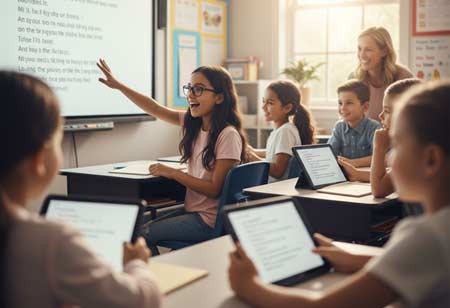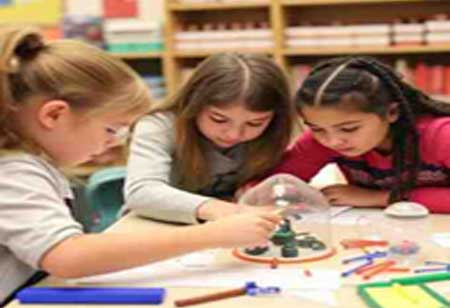THANK YOU FOR SUBSCRIBING
Be first to read the latest tech news, Industry Leader's Insights, and CIO interviews of medium and large enterprises exclusively from Education Technology Insights
The Top 5 Advantages Of Social And Emotional Learning In The Classroom
According to research, students are experiencing an increased lack of connection to their peers and communities and higher levels

By
Education Technology Insights | Thursday, April 07, 2022
Stay ahead of the industry with exclusive feature stories on the top companies, expert insights and the latest news delivered straight to your inbox. Subscribe today.
The COVID-19 pandemic has had a significant impact on students' social-emotional learning and academic performance.
Fremont, CA: According to research, students are experiencing an increased lack of connection to their peers and communities and higher levels of mental health issues. As a result, social and emotional development is slowed.
What exactly is Social–Emotional Learning (SEL)? Why does my child need it?
Social-emotional learning (SEL) is the process by which children, adolescents, and adults:
○Improve their ability to understand and manage their emotions. Set and work toward positive goals
○ Appreciate other people's points of view
○ Demonstrate empathy
○ Make better decisions
○ Foster positive relationships
The advantages of a social-emotional education are numerous and diverse. Here are six of the most significant benefits of SEL.
1) Improves Academic Performance
According to research, students' academic performance improves when they develop stronger social and emotional skills. For example, when students feel heard and respected in the classroom, they are more likely to concentrate on their studies and be confident in their abilities. SEL also improves students' attitudes toward school, increasing attendance and learning motivation.
2) Increases Self-awareness and Self-confidence
SEL promotes a developmental shift in which students move away from relying on outside sources for guidance on how to act and toward trusting in themselves and their values. This process enables children to develop their self-esteem and self-belief.
3) Enhances Empathy for Others
Empathy, or the ability to understand another person's feelings and perspectives, is regarded as a fundamental social skill. In addition, empathy practice leads to developing other important skills such as conflict resolution, healthy communication, and kindness toward others.
4) Enhances Relationship-building Abilities
When children learn to put themselves in the shoes of others and practice empathy, they become more adept at building and maintaining relationships. This includes understanding how to be a good friend, recognizing the emotions of others, and engaging in conflict resolution. SEL also teaches youth to collaborate with others and work as a team.
5) Reduces Emotional Distress
It is becoming clear that students exposed to SEL in the classroom have lower levels of anxiety, depression, stress, and social withdrawal. In addition, students' central executive cognitive functions improve due to SEL programs, which improve their ability to self-regulate and better manage and cope with their emotions







